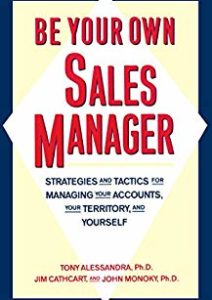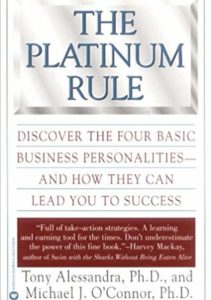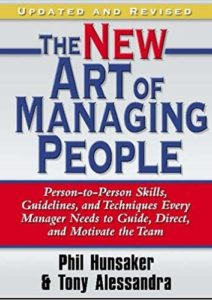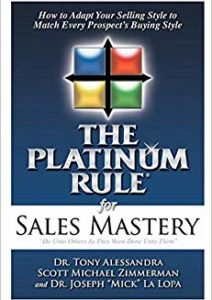Within my speaking/training business, I always had a product mix to offer clients – books, audio and video programs, and assessments. I started offering paper-based assessments to clients in 1975. In 1996, when my Platinum Rule® book was released by Warner Books, I decided to create an online assessment for the sole purpose to sell more books. I was quite surprised that nearly 10,000 people were taking the Platinum Rule online assessment and raving about it. Four years later, the blinding flash of obvious finally hit me – this could be a business unto itself – offering and using online assessments as an additional revenue source.
So, the big question for you is should you too add online assessments to your product mix as an additional revenue source?
To help you answer that question, I’ll paraphrase Simon Sinek and tell you to “Start with Why.” An assessment product should be congruently aligned with your business – and your audience should be able to connect to it intuitively. The second thing to consider is how you might use assessments. There are several ways and reasons to consider using online assessments, such as:
- Collecting objective data to use in articles, interviews or speeches
- Building a mailing list to market other products or speeches
- Personal coaching of individuals, partnerships or teams
- Creating a passive, recurring revenue stream
- Helping your clients with employee recruitment, selection and training
If you decide that you do want to use assessments, the next decision is do you want people to take them for free or do you want to charge a fee. The free assessment route is great for simply collecting data, building a mailing list or even selling other products based on how an individual scores on your assessment.
There are several sources you can contact to create a no-cost or low-cost assessment that you can have others take for free, such as Survey Monkey, Questionmark.com, AssessmentGenerator.com, and Assess.biz among others.
If you decide you actually want to make a business of online assessments, you have another decision to make – use off-the-shelf assessments or create your own unique assessment.
Off-the-shelf assessments are widely known, widely used validated assessments such as DISC, MBTI, Motivators, Hartman, etc. Many companies already use one or more of these assessments, so why not purchase them from you if they are one of your clients?
Using one of these “brand name” assessments lowers the barrier of entry, and since these tools are already well known, you won’t have the burden of explaining an assessment model with which your prospects and clients are unfamiliar. Additionally, certifications in these well-known tools can boost your perceived expertise. Most clients auto order their DISC assessments monthly to create tens of thousands of dollars of monthly recurring revenue.
Creating and promoting your own custom assessment can be quite costly but immensely profitable. There are several items to consider when creating your custom assessment, such as:
Self-assessment or 360º (multi-rater) assessment. If a 360º assessment, you’ll need:
- The names of the rater groups (these are the people who give assessment feedback to the end users, such as manager, colleague, direct report, client, etc.)
When creating your customized assessment, you’ll need:
- The competencies being measured (such as decision-making, persuasiveness, drive and persistence, etc.);
- The questions per competency (typically 5-8 questions per competency that are used to measure each competency);
- The scales used to measure the competency on any given question (such as strongly agree to strongly disagree, always to never, etc.) or the mathematical algorithm to compute the answers;
- Whether or not you want open-ended feedback questions for the raters to add additional comments after every competency or at the end of the entire questionnaire.
The end user report structure:
- “Static” report (same report copy for all end users with only their results graphs being different);
- “Dynamic” report (the report copy changes based on the end user’s answers to either individual questions or competency scores);
- Will the report be delivered in html format right after the end user submits answers to the questionnaire;
- Will the report be emailed in PDF format to the end user;
- Will the end user have to log into a website to access their report (usually used with 360º assessments when the end user needs to send requests to raters)?
Do you want to use demographic questions (such as age, gender, education, etc.) within your assessment which can allow you to slice/dice/analyze your data to use in presentation slides, articles, media interviews, etc. It lends research credibility to your assessment results.
In addition to all of the above, you’ll need an expert, usually a psychometrician, to create your questionnaire, competencies, questions, scoring algorithm and, most importantly, statistically validate your assessment. Why validate? It lends credibility to your assessment and you are likely to be able to charge more for your assessment, particularly in the corporate world.
One last decision is where to host and manage your assessments. You are certainly able to create your own assessment system/dashboard but the cost, ongoing management and system updates may be prohibitive. Whether you decide to build your own assessment system or use an outside vendor, make sure your assessment delivery system does most or all of these things:
- Saves raw data on a SQL database for analyses, articles, interviews, etc.
- Has multi-rater and company/team composite scoring capability
- Can generate “dynamically programmed” reports with integrated data charts/graphs
- Allows end users to log onto a home page for their results, report, etc.
Provides shopping cart integration - Includes merchant account, gateway and SSL for automated secure credit card transactions
- Provides end users with results, rater results (for 360º assessments), composite results of everyone in their company/team, composite results of everyone who’s taken the assessment, etc.
- Has an automated way to send reminders to end users, raters, etc.
- Allows reseller and corporate account dashboards
- Includes a built-in affiliate program
- Allows “white labeling” for your own design and branding as well as for your clients
- Includes technical support and help desk for the end user, resellers, and corporate clients
Online assessments aren’t for everyone. However, they can be a significant profit contributor to your business. The beauty is passive, recurring revenue. Diversifying my speaking/training business into online assessments turned out to be one of the best business moves of my career. Not only did my speaking/training business help my assessment sales – my assessment business has opened opportunities for more and better speaking/training engagements.















Comments